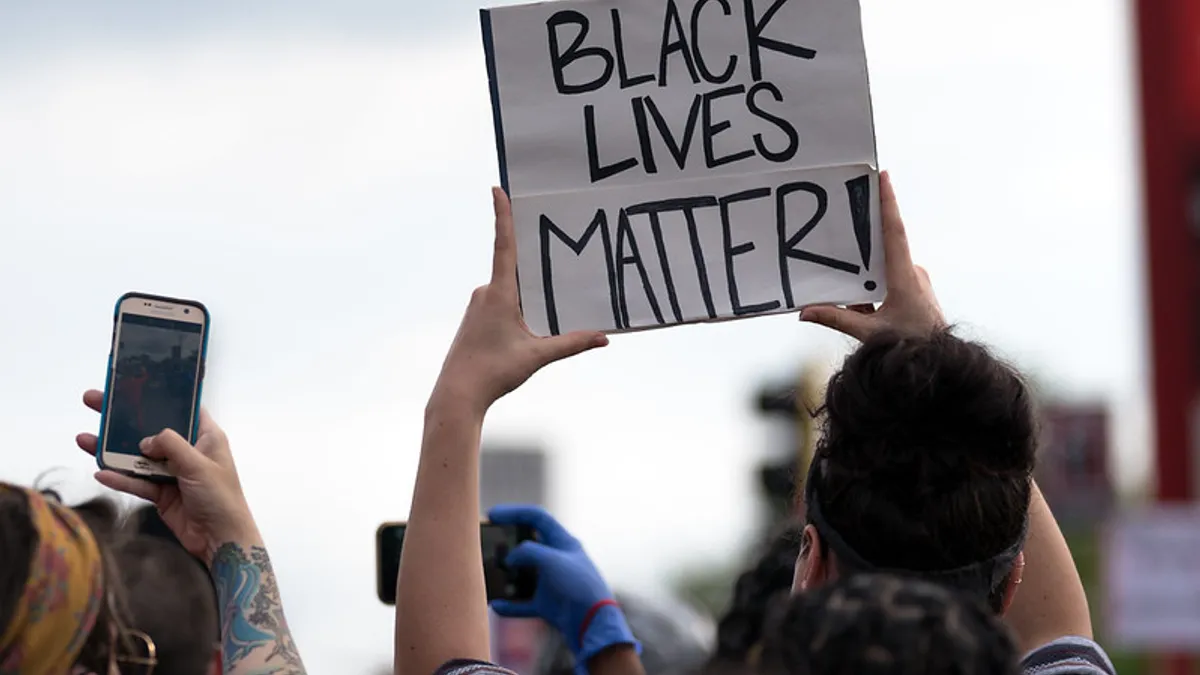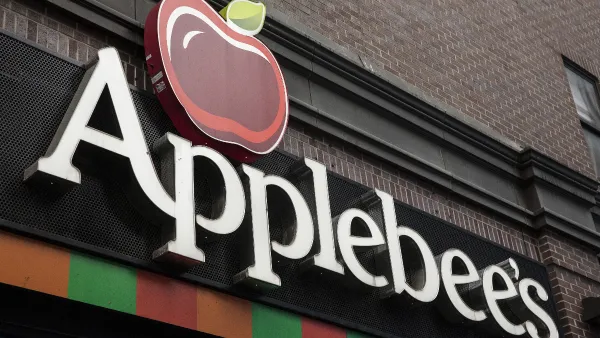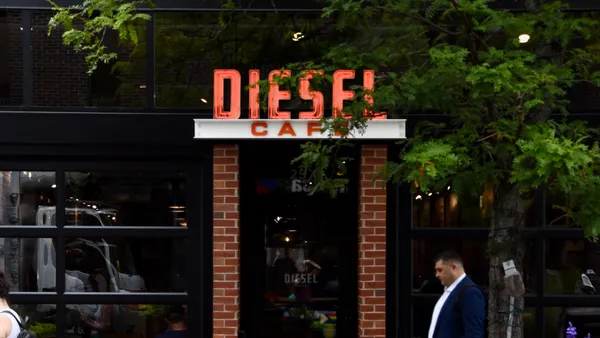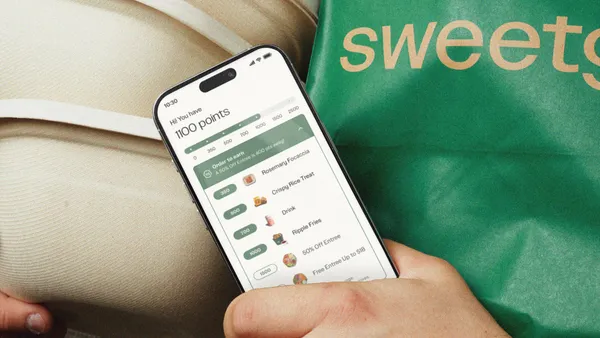Dive Brief:
- Fifty-one percent of consumers are less likely to buy products and services from companies that don't allow their employees to express support for Black Lives Matter, according to DealAid aid data collected from 1,000 U.S. residents. Forty-four percent of consumers are more likely to buy from businesses that visibly support the social movement. Over 20% of consumers said they will actively try to avoid buying from brands that restrict employees from expressing support for the movement.
- Support via social media accounts is least likely (13.7%) to be perceived by consumers to have a significant impact on supporting Black Lives Matter, and 25.5% of consumers believe that donations are the most impactful contribution a company can make to the cause. Nearly 25% of consumers felt the most impactful way to support the movement is through organizational diversity changes.
- Forty-five percent of consumers said they are less likely to buy from Starbucks because of the chain's initial decision to bar employees from wearing apparel that supports Black Lives Matter.
Dive Insight:
As consumers become increasingly socially conscious and restaurant chains work to establish themselves as lifestyle brands, chains must now be prepared to engage with the topic of race — and do so sensitively and authentically.
Several major restaurant chains responded to the Black Lives Matter movement at the height of its social media saturation earlier this summer — McDonald's ran an ad in June spotlighting victims of police brutality, for example. But Taco Bell and Starbucks are prime examples of businesses that either appeared to rush their response to Black Lives Matter without anticipating potential backlash, or did not fully communicate their stance on the issue all the way down the corporate ladder.
Starbucks initially banned employees from wearing attire supporting the movement to work, which staff members and critics felt was hypocritical since employees were allowed to wear attire that supports LGBTQ rights and the chain had distributed pins and accessories supporting the LGBTQ community to workers in the past. Even though the company was quick to pivot its policy once calls for boycotts arose, and designed 250,000 T-shirts for employees that include phrases like "Black Lives Matter" and "No justice, No peace," this study shows that diners will use their wallets to hold brands accountable for past mistakes.
Taco Bell's misstep hasn't been amplified as much as Starbucks' situation, but could still erode brand loyalty with socially conscious diners. Though the chain did not prohibit workers from wearing Black Lives Matter face masks, an employee in Youngstown, Ohio, was fired for doing so, and the situation was captured in a viral video.
Starbucks has since pledged $1 million "to organizations promoting racial equality and more inclusive and just communities" and has partnered with Arizona State University to create anti-bias resources and training, but these efforts could be overshadowed by the initial Black Lives Matter clothing ban, especially since the policy was shared so widely on social media.
The Starbucks backlash and DealAid's findings underscore the importance of being prepared to respond to sensitive topics when they arise, and that platitudes shared on Twitter and other social platforms are not enough to convince a consumer that the brand is taking these issues seriously.
"If you are expecting to get Black dollars, then you are also expected to make a statement and make some serious change within the organization," Courtney McKenzie Newell, founder and CEO of Crowned Marketing & Communications, told Marketing Dive. "Not just Black people, but also allies are looking and watching. [They're] expecting brands to really take a stand and be more human and not just think about the bottom line."














